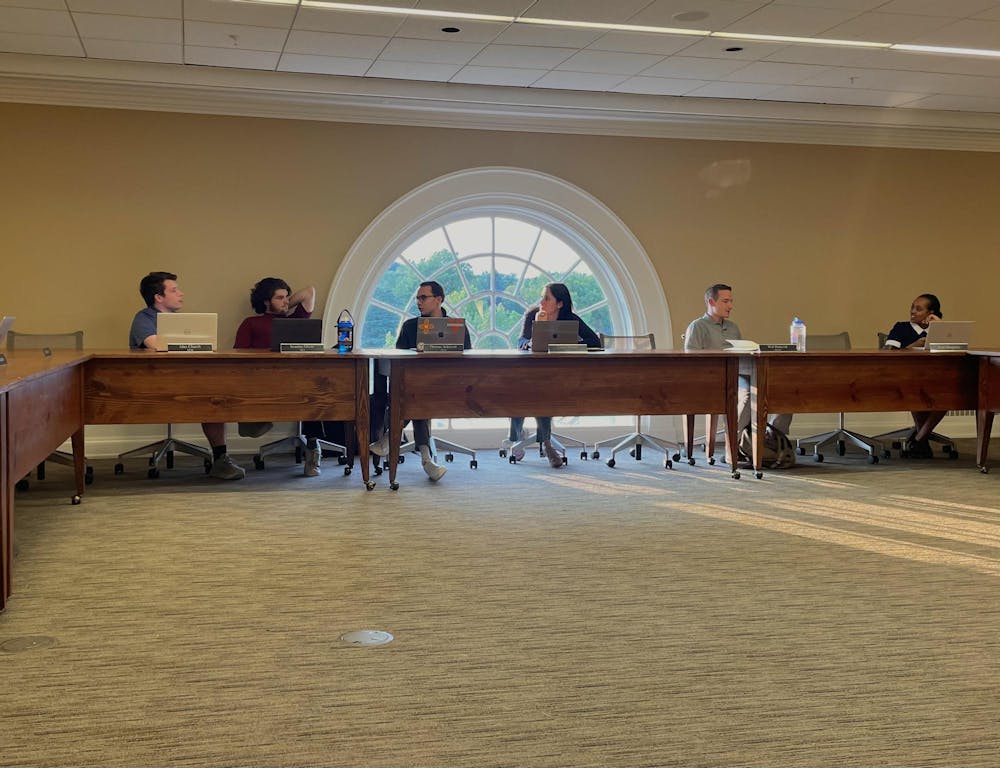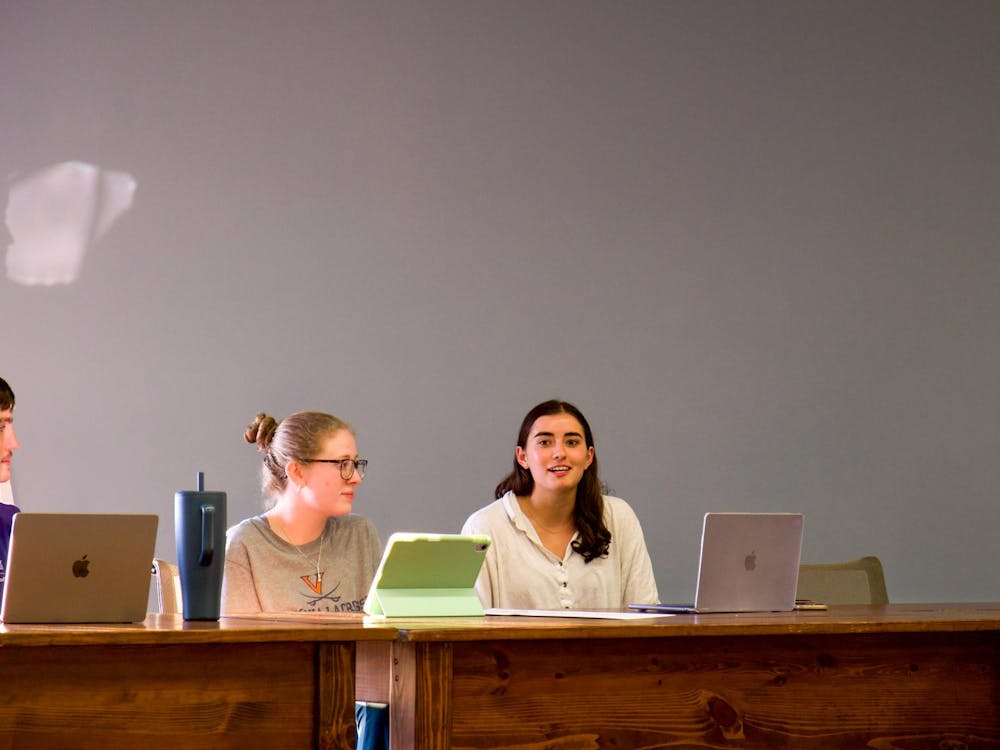The Honor Committee convened Sunday for their second meeting of the fall semester and voted to revise their temporary vacancy policy, which addresses procedures for when representatives are temporarily unable to fill their designated school seats on panels for guilt or sanctions.
The updated bylaw now also accommodates situations where representatives are absent or unable to serve due to a conflict of interest. The Committee also discussed recruitment plans for support officers, such as potentially encouraging master of laws students — or LL.M. — to get involved with the Committee and qualities to look for from applicants in the interview process.
During last week’s meeting, the Committee debated changing their vacancy policy — the procedure for when both representatives from the accused student’s school cannot serve in a panel for guilt or a panel for sanctions — in an effort to guarantee proper representation for an accused student. In a panel for guilt — which includes five Committee representatives and seven student panelists — at least one representative and two panelists must be from the accused student's school. In a panel for sanctions, consisting of five Committee representatives, one must be from the accused student's school.
Under the previous bylaws, the vacancy policy only addressed situations where all representative seats from a particular school were vacant — meaning when a representative could not make a meeting due to other obligations. In such cases, the Chair and the Vice Chair for Hearings would coordinate with the school's administration to appoint a temporary student to fill in as a representative.
The updated bylaws now have a broader scope for empty representative seats. The policy includes not only vacant representative seats but also situations where all representatives from the school are “ineligible” to serve on the panels. This new language addresses issues such as conflicts of interest — when a representative has a personal relationship with the accused — illness or other reasons that might require representatives to recuse themselves.
Seamus Oliver, vice chair for investigations and third-year College student, drafted and presented the bylaw changes. Oliver said that though the new bylaws address temporary situations through the updated policy, they do not resolve the ongoing issue of what to do when a representative is permanently absent.
“This is only for [when there is] a temporary vacancy,” Oliver said. “[The bylaw change] does not solve any of the other [permanent] ones, which I think wider discussion is needed.”
The Committee voted unanimously in favor of changing the bylaws and said it will discuss long-term vacancy policy in future meetings.
The Committee also discussed recruitment, as the interview period for Honor support officers — members assigned to assist in Honor proceedings — is scheduled to begin Sept. 22. Laura Howard, chair and fourth-year College student, led a discussion about potentially letting L.L. M. students serve as support officers.
LL.M. students are individuals enrolled in the one-year graduate program who have already obtained a law degree and plan to gain specialized knowledge or further their expertise in a particular area of law. Cassidy Dufour, law school Rep. and School of Law student, said that there are around 80 L.L M. students at the University and that none of them have ever served as support officers before.
Dufour said that while the bylaws do not explicitly bar LL.M. students from serving on the Committee, there are concerns about fairness if LL.M. students were to serve specifically as Honor counsel — support officers responsible for investigating reports of alleged Honor offenses and presenting the case during hearings. Dufour’s concern is that LL.M. students, with advanced legal training, might have an unfair advantage over less experienced University students serving as counsel. As an alternative, Dufour suggested that LL.M. students could be allowed to serve only in other support officer roles, where their expertise would not create a potential imbalance in the case process.
“There are some fairness concerns when we have [students] going up against someone with years of litigation under their belt,” Dufour said. “[They could] just be an advisor or educator, but not counsel.”
Oliver, however, said that he was concerned about the limited time that LL.M. students would be able to work as support officers, given that training lasts an entire semester and their program lasts only one year.
“We would be sending [LL.M.] students through a full training course over the course of the semester [where] we're getting them for three months maximum,” Oliver said. “I think that’s the concern.”
The Committee did not reach a consensus on the LL.M. discussion and moved on to discussing the qualities needed for recruiting support officers. Support officer outreach has been ongoing since the start of the fall semester, and interviews are slated to begin Sept. 22.
Ben Makarechian, fourth-year Batten Rep., said that it would be beneficial to ask members about their time commitment towards the Committee in interviews.
“If a candidate is willing to devote a lot of their time to Honor and become involved, [it’s] really valuable and strengthens Honor as a whole,” Makarechain said. “[That] should give them a boost in consideration.”
Applications for support officer positions will close Sept. 15. The Committee will meet again Sunday at 7 p.m., either via Zoom or in a room to be determined, as the trial room will be occupied by the University Judiciary Committee.







